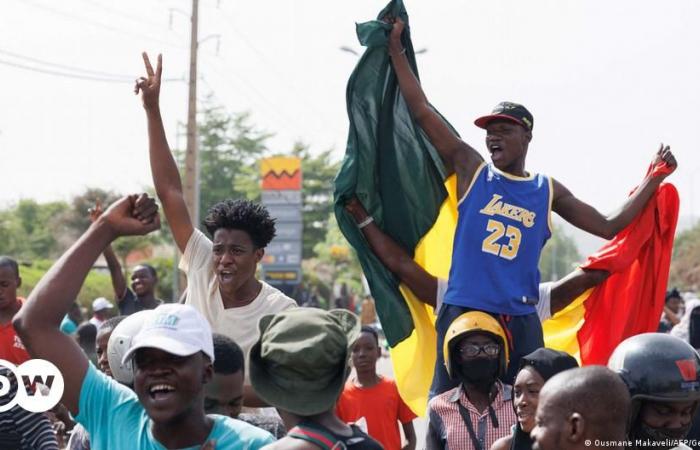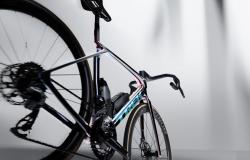In the Sahel, three countries, Mali, Burkina Faso and Niger, are now led by military coup leaders, the case of Chad being different since elections were organized in May. Local civil societies and their German partners are trying to adapt and redefine a basis for their cooperation. The Fokus Sahel NGO network recently organized a meeting so that its members could freely discuss these issues.
Coups have changed the situation in the Sahel
Aminata Touré Barry chairs Amasbif, the Malian Association for the Safeguarding of Family Welfare, a Malian civil society organization.
Displaced people flee jihadist attacks in Burkina Faso
This browser does not support the video element.
When she states that “these are not coups d’état, but they are overthrows”, his remarks earned him murmurs of disapproval from the German partner organizations present at the meeting. But also from other representatives of Mali, Burkina Faso, Chad and Niger.
The takeover of power by force by the military in recent years – as in Mali, Niger, Burkina Faso, Chad, and even Guinea – has had repercussions on cooperation with Germany.
The Federal Republic indeed defends freedom of opinion, democratic values, the rule of law – all notions which have, at best, taken a back seat under the government of the putschists.
Maintain the link
However, Germany does not want to sever the link with local human rights or development organizations. And this is a mutual interest, according to Marcel Maïga, from the Fokus Sahel NGO network :
“On the Sahelian side, we still have an interest, a desire for Germany to get involved in this regionhe says. On the other hand, Germany is ready, despite the difficult situation, and despite the conditions which are not always up to what Germany would like – to continue to dialogue and work together with these countries.”
Is there an African-style democracy?
This browser does not support the video element.
Ulrich Thum works for the Africa department of the Friedrich Ebert Foundation (FES ). This German foundation, close to the environmentalist party, maintains an office in Bamako and publishes the Mali-meter every year. a study that reflects the atmosphere in Malian society. “We see that, on the one hand, support for the government remains really strongexplains Ulrich Thum. And on the other, that Malians place peace and security at the top of their concerns. Two trends that contradict each other a little.”
Reading differences
Aminata Touré Barry, from Amasbif, does not see how support for the military and these aspirations contradict each other. “If partners like Germany do not want to collaborate with Mali, it is because they have not understood the problem.”
She declares that the Malian population always needs security, access to care and food and that for this they need assistance from abroad. However, according to her, currently, Russia would be the quickest to respond to these needs.
His compatriot, Ousmane Maïga, of the Youth Association for Active Citizenship and Democracy , does not agree. He believes that current attempts to encourage social cohesion are insufficient and he deplores the restrictions on civil liberties in his country.
Ousmane Maïga deplores “a regression from a democratic and political point of view, particularly in the organization of free and transparent elections”. And he continues: “We are witnessing postponements of these elections which are making a large part of the population unhappy, in particular us, actors (of civil society), who follow the case of citizenship and democracy.”
Stopovers: living under military regime
This browser does not support the video element.
Ousmane Maïga also believes that a military coup was not necessary to resolve Mali’s problems. And he cites Senegal as an example: “The case of a neighboring country has of course shown us that we can make a change without it being a total overthrow of the system.
Restrictions and frustrations
In Chad, young people are also angry at the lack of prospects, explains Epiphanie Dionrang. This feminist activist has not noticed any improvement since the coming to power three years ago of General Mahamat Idriss Déby, the son of the late President Idriss Déby Itno. He was elected President of the Republic last May.
“There are so many restrictions in spaces, much more for young people toodescribes the young woman. There is this hatred between ethnic groups. There is this frustration among young people. Some were born under a regime, grew up under this same regime, without change.”
Epiphanie Dionrang considers this frustration as the breeding ground for political radicalization of young people which then leads to even more ferocious repression on the part of the authorities.
At the end of the meeting, the members of the Fokus Sahel network reaffirmed their desire to continue working together to improve the daily lives of the populations, despite the difficulties and while remaining attentive to the base: the main concerned.






